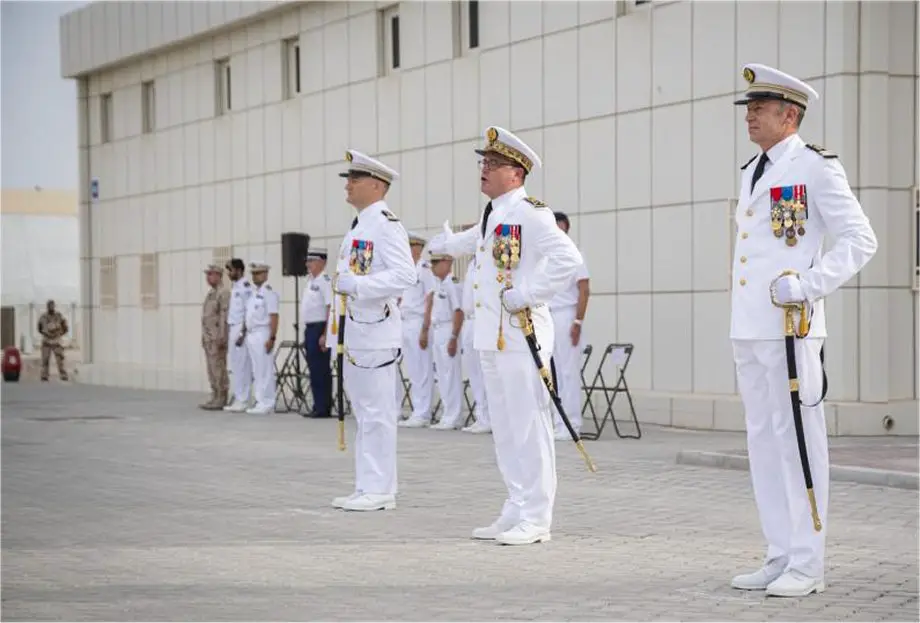Breaking news
France Navy refuses to sail under US Command for operations in Red Sea against Houthis.
According to information published by Le Parisien on January 11, 2024, in a recent video conference with the Ministry of the Armed Forces, Vice Admiral Emmanuel Slaars, the commander of French operations in the Indian Ocean, emphasized that the French military presence in the Red Sea, particularly in response to Houthi attacks, remains entirely under French command. He clarified that their operations are not subordinate to their American counterparts.
Follow Navy Recognition on Google News at this link
 Vice Admiral Emmanuel Slaars appoints Captain Christophe Barrieu as the new commander of the Abu Dhabi naval base. (Picture source: French Navy)
Vice Admiral Emmanuel Slaars appoints Captain Christophe Barrieu as the new commander of the Abu Dhabi naval base. (Picture source: French Navy)
Vice Admiral Slaars highlighted the strategic cooperation between France and the United States in the region, noting an "intelligent geographical distribution of efforts" and a mutual sharing of information. He pointed out that French naval vessels are interconnected in such a way that real-time detection by one ship is visible to all, enhancing their operational effectiveness.
Context
The statement by Vice Admiral Emmanuel Slaars regarding the French Navy's operational independence in the Red Sea offers significant insights into the strategic approach and alliances of France in a geopolitically sensitive region. This region is a critical maritime corridor for global trade, and the presence of international naval forces here is often a delicate balance of power and cooperation.
Strategic Autonomy
The emphasis on the French Navy's independent command highlights France's desire to maintain strategic autonomy. This approach allows France to pursue its national interests and respond flexibly to regional challenges without being strictly aligned with the policies or strategies of other nations, even allies like the United States.
The Red Sea region is a focal point of various geopolitical interests. It is not only a vital shipping lane but also a zone of influence for major powers and a flashpoint for regional conflicts.
By maintaining an independent but cooperative stance, France positions itself as a key player capable of engaging with various actors, including regional powers and other involved nations like the United States.
As a European power with historical ties in the region, France's independent command can be seen as less provocative than a solely US-led presence, which might be perceived as external interference.


























